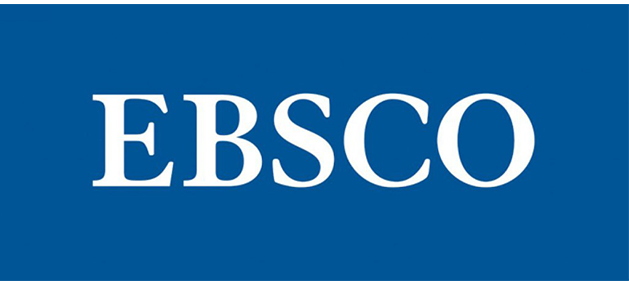ENCOURAGING ENTERPRISE RESILIENCE AND UNPREDICTABLE BUSINESS ENVIRONMENT
Keywords:
small and medium enterprises, resilience, business environment, globalizationAbstract
Small and medium enterprises create new jobs and contribute to the eco-nomic development of every country. In the conditions of globalization, companies have become exposed to global economic “shocks”, which are unpredictable in nature, and affect their profitability. To be resilient, organi-zations need to rely on strong leadership, an understanding of the work en-vironment, and the ability to adapt and respond to rapid change. However, are they resilient enough to deal with business in a risky and unpredictable business environment? The aim of the research is to show the importance of the need for improving resilience and to determine the possibilities for its achievement. For this purpose, our qualitative methods were used, as well as extensive literature as the theoretical framework of the research.
References
[Tierney, K. (2003). Conceptualising and Measuring Organizational and Community Resilience: Lessons from the Emergency Response Following the September 11, 2001 Attack on the World Trade Center, Preliminary paper 329. Newark: University of Delaware.
Holling, C.S., (1973). Resilience and stability of ecological systems. Annual Review of Ecology and Systematics, 4, 1–23.
Gallopin, G.C., (2006). Linkages between vulnerability, resilience, and adaptive capacity. Global Environmental Change, 16, 293–303.
Gomes, R. (2015). Resilience and Enterprise Architecture in SMEs, JISTEM J.Inf. Syst. Technol. Manag. vol.12 no.3 São Paulo Sept./Dec. 2015 (Retrived:January 10 ,2022.).
Carpenter, S., et al., (2001). From metaphor to measurement: resilience of what to what? Ecosystems, 4, 765–781.
Stephenson,A.(2010). Benchmarking the resilience of organisations,University of Canterbury.
Radovic Marković, M. (2017). Fostering resilience of the enterprises in Serbia. У: KRSTIĆ, Milan (ed.). Proceedings Kruševac: Business School Prof. dr Radomir Bojković, 1-7.
Sheffi, Y. and Rice Jr, J. B. (2005). A supply chain view of the resilient enterprise. MIT Sloan Management Review, 47 (1), 41–48 (2005).
Sullivan-Taylor, Bridgette and Branicki, Layla. (2011) Creating resilient SMEs: why one size might not fit all. International Journal of Production Research, Vol.49 (No.18). pp. 5565-5579. ISSN 0020-7543
Smith,E.(2016). Risk & Resilience Manager: Building Resilience in SME’s, Oakpark Security,United Kingdom. http://www.oaksec.co.uk/building-resil-ience-in-smes/ (Retrived: January 14,2022).
Ponomarov, S.Y. and Holcomb, M.C., 2009. Understanding the concept of sup-ply chain resilience. International Journal of Logistics Management, 20 (1), 124–143.
Reinmoeller, P., & Van Baardwijk, N. (2005). The link between diversity and resilience. MIT Sloan Management Review, 46(4), 61–65.
Mallak, L., (1999). Toward a theory of organizational resilience. In: Portland International Conference on Technology and Innovation Management. PICMET.
Portland, OR: IEEE.
Patterson, E.S., et al., (2007). Collaborative cross-checking to enhance resilience.Cognition, Technology & Work, 9, 155–162.
Vogus, T.J. and Sutcliffe, K.M. (2007). Organizational resilience: towards a theo-ry and research age da. IEEE Conference on Systems, Man and Cybern.
Lengnick-Hall, C.A., Beck, T.E., and Lengnick-Hall, M.L. (forthcoming, 2010). Developing a Capacity for Organizational Resilience through Strategic Human Resource Management. Human Resource Management Review, DOI:10.1016/j. hrmr.2010.07.001.
Burnard, K., & Bhamra, R. (2011). Organisational resilience: Development of a conceptual framework for organizational responses. International Journal of Production Research, 49(18), 5581–5599
Radović Marković, M. (2018). Organisational Resilience and Business Continuity: Theoretical and Conceptual Framework, Journal of Entrepreneurship and Business Resilience, FIMEK ,Novi Sad ,pp. 5-11 .
Radović Marković, M., Đukanović, B., Marković, D., Dragojević ,A., (2021). Entrepreneurship and Work in the Gig Economy -The Case of the Western Balkans, Routledge, London, United Kingdom, ISBN 9780367725778
Beermann, M. (2011). Linking corporate climate adaptation strategies with resil-ience thinking, Journal of Cleaner Production, Volume 19, Issue 8, May 2011, Pages 836–842.
Radović-Marković,M . (2008) .Managing the organizational change and culture in the age of globalization, Journal of business economics and management,
Taylor & Francis Group,Vol. 1 ,pp .3-11. http://www.tandfonline.com/doi/pdf/10.3846/1611-1699.2008.9.3-11 (Retrived: July 14,2022.)
Salamazdeh, Y., Salamazdeh, A. , Radovic Markovic, M. (2016). International Review, Cultural intelligence and Network Organizations in Society: Case of Tehran Neighborhood Councils, 1(2).
Radovic Marković, M., Shoaib Farooq, M. & Marković, D. (2017). Strengthening the resilience of small and medium-sized enterprises. У: TAKÁCS, István (ur.). Management, enterprise and benchmarking in the 21st century IV: Global chal-lenges, local answers. Budapest: Óbuda University, 2017, str. 345-356
Downloads
Published
How to Cite
Issue
Section
License

This work is licensed under a Creative Commons Attribution 4.0 International License.
http://creativecommons.org/licenses/by-nc-nd/4.0














